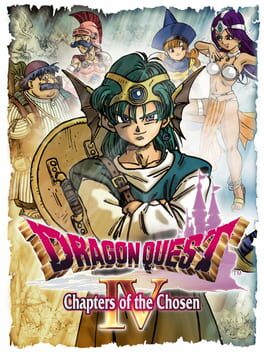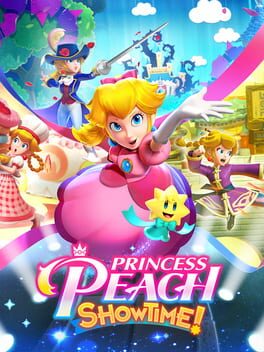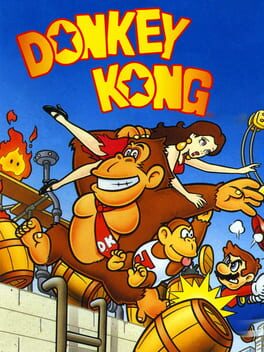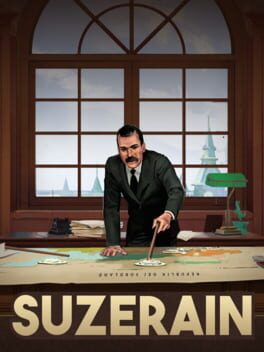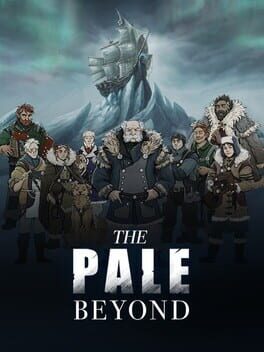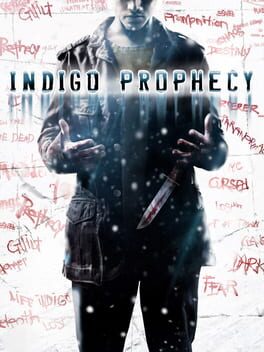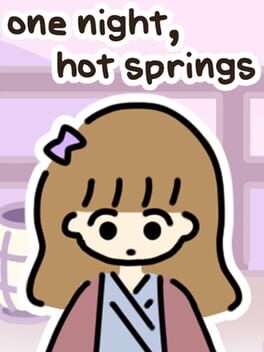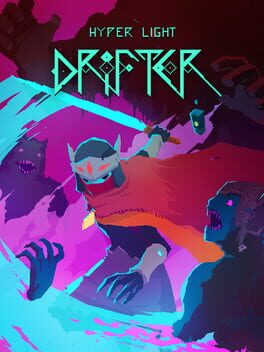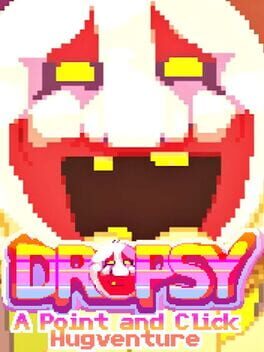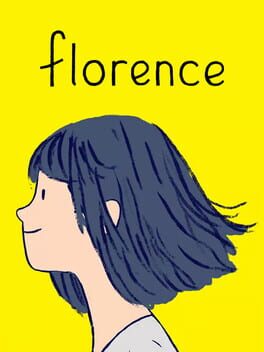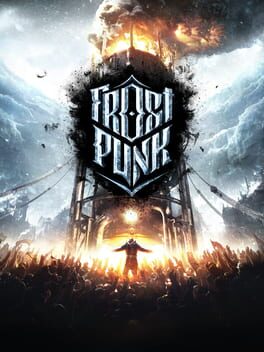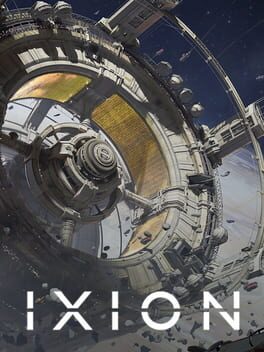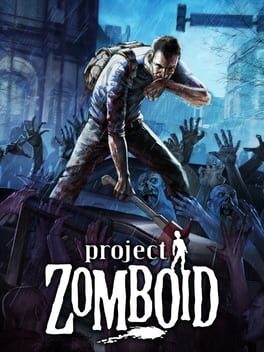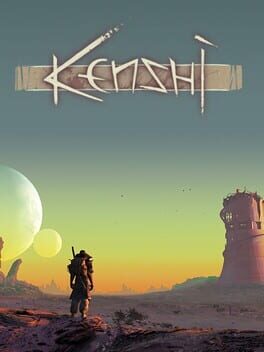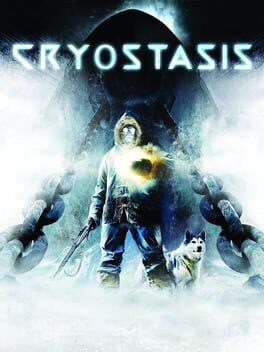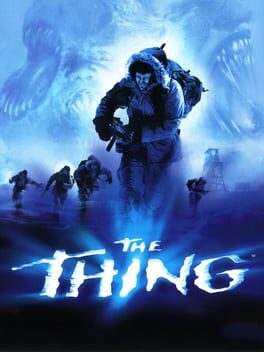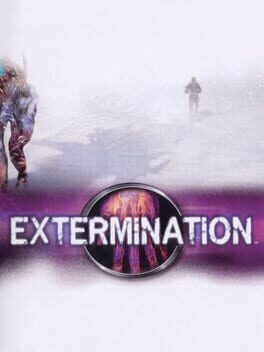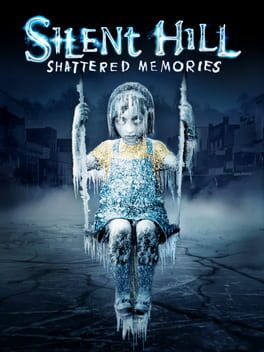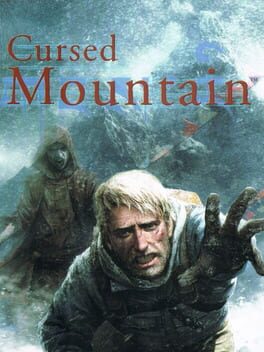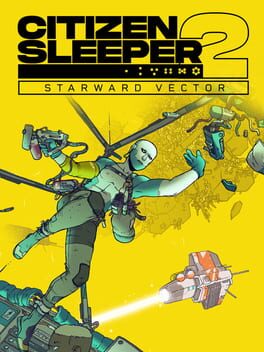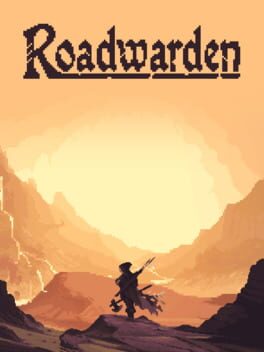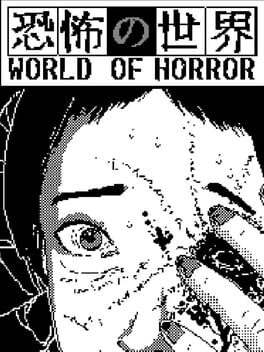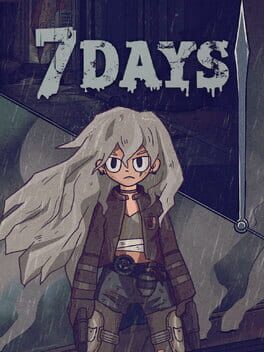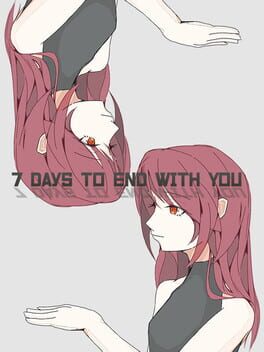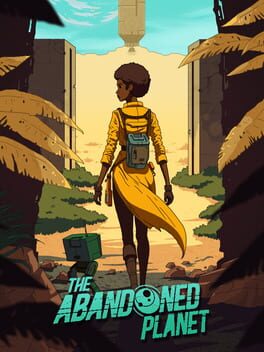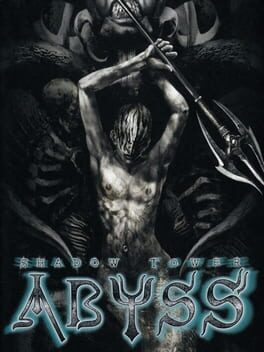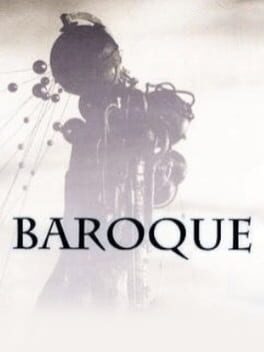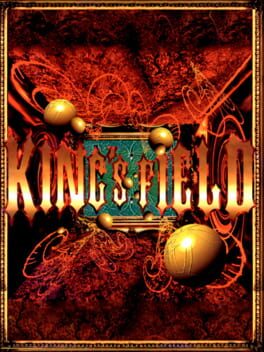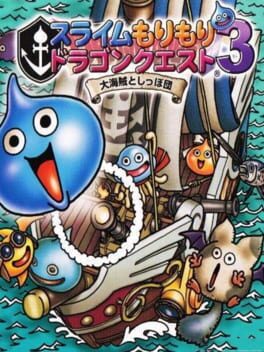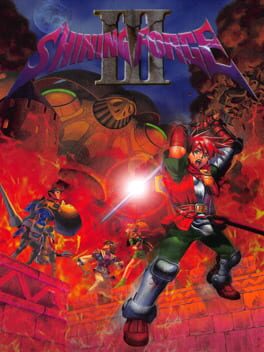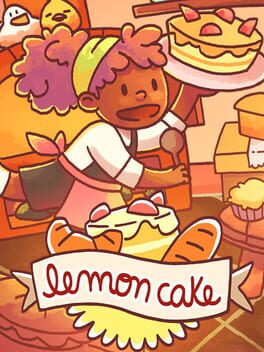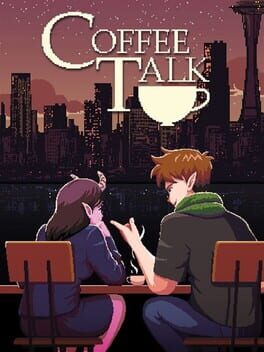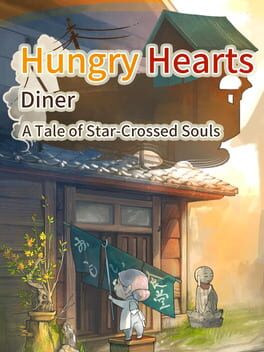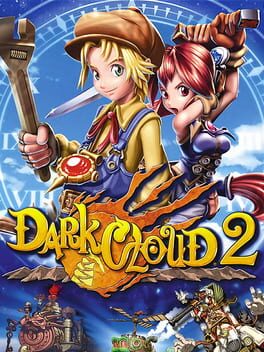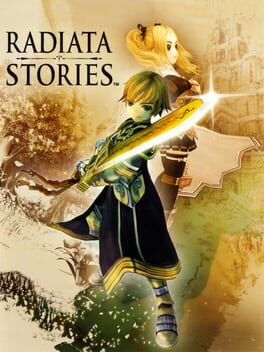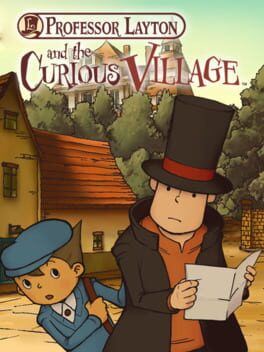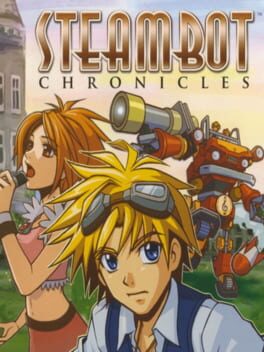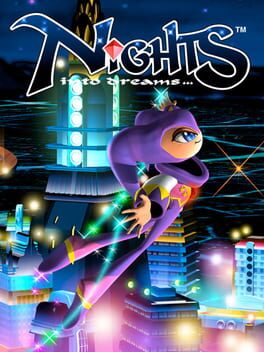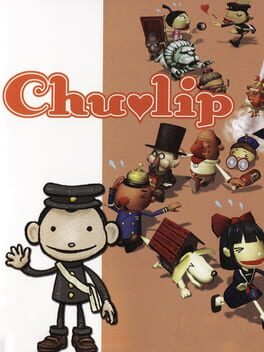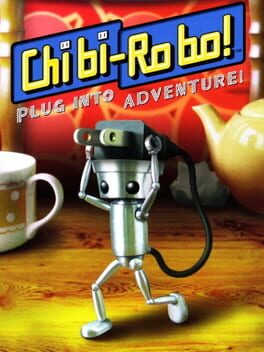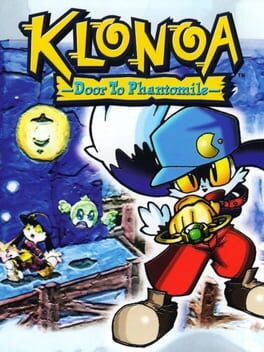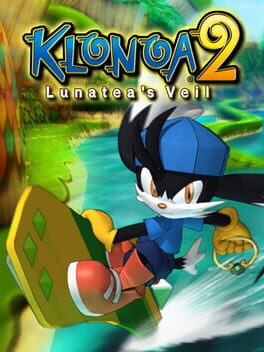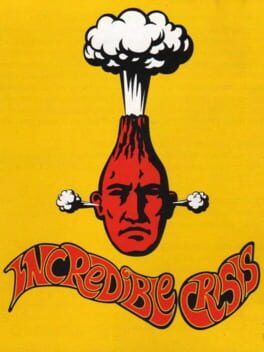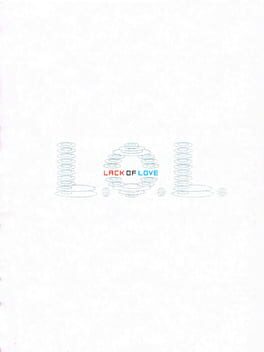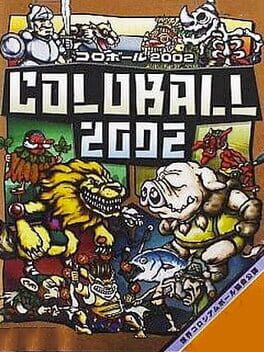92 reviews liked by efrencito
Whenever I found myself disappointed that Dragon Quest IV wasn’t taking its most interesting ideas very far, I had to stop and remind myself that I’m actually playing an NES game, and in that context it does feel remarkable. As much as the series would become known for playing it safe and sticking to its traditional conventions, at this point that’s not quite as true as it will be in twenty years. Surely the aesthetics are locked in, and the core interface is basically solved, but the format is still being played with in these NES era Dragon Quests. That first game is so revolutionary that iterations on its formula in all future RPGs make it feel fresh even today, 2 is a sprawling sequel in all the wrong ways, and 3 refines that approach to world exploration while adopting a diverse class system and the series staple episodic town story format. Dragon Quest IV’s innovations may be deceptive at first because they’re not gameplay-centric, more focused on stretching the limits of presentation on the NES. It definitely feels like a game where, having kind of done everything there is to do and conquered the world with the third one, now we’re just stretching our legs, getting playful, and a little bit more experimental in ways that are as fun as they are underwhelming at times. Regardless, keeping in mind through the shiny coat of paint and user-friendliness of the DS remake that this game came out in 1990 helps me swallow that disappointment even as that’s my primary vibe a lot of the time playing it.
Most of that feeling comes courtesy of this game’s big hook and, uh, name, is its chapter-based structure, where roughly the first half of the game is broken into four chapters that chronicle the adventures of your nameless Hero Character’s JRPG party as they pursue the personal missions that lead them to cross paths with you and join up when you finally take control of the main kid in chapter five. This is a novel concept, one that I wish had inspired other things more directly. This is the kind of idea that I feel should be brazenly stolen rather than referenced as a cool thing that one venerable beloved thing did. It’s pretty sick and IMPORTANTLY I don’t think it’s really taken advantage of as an idea.
There’s a degree to which this eases you into the game, starting you with a character who is really tanky with no access to magic and an optionally recruitable heal guy, chapter two giving you a balanced party, and chapter four skewing you heavily towards squishy mage characters against the toughest enemies yet (I’ll get back around to chapter 3). Each of these mini-adventures is fun, and cute, and they do a fun job of introducing you to various parts of the world and previews of their problems and cultures before you’ll eventually get the chance to really address them and visit them in the interconnected way that previous DQ games have, and watching that world map stitch itself together as you go through chapter 5 is genuinely special in a way I’m not sure any other game can replicate exactly. They do go on maybe a little bit too long, and starting every character flatly at level 1 in each scenario does tune things a little needlessly grindy in a series that hasn’t had any problem being breezy before now but has the dark cloud runtimes of games like DQ7 and 11 looming ever nearer.
The real issue I take with these chapters, however, is that they feel like wasted opportunities, largely because chapter 3 is such a unique standout compared to the rest. In chapter 3 you play as Torneko, a middle-aged merchant guy who has inexplicably become a mascot for the series and the star of the first ever Mystery Dungeon game, as he works at his small town’s weapons shop and dreams of one day opening his own. There IS a pretty normal DQ adventure here, sort of, but there’s not really an enemy you’re driving to defeat or a primary antagonist, and I spent a lot of time at the top of this chapter working at the shop for money. Guys come in and say hey will you sell me this item and I say yeah of course. Sometimes they come in and sell me a crossbow just like I’ve done a million times in these games, and I give them a good price. Sometimes a guy will come in and sell a REALLY nice sword and if I can afford it from my meager earning’s I’ll buy that and equip it myself to eliminate the need for the grind if I can, seeing as Torneko is not really a combat guy. He can inspect items though and appraise their value, maybe squeeze a few more coins out of them than they’re worth.
Because that’s his whole thing, while you are still diving through dungeons and stuff you’re doing it in service of raising funds to rent space for your storefront, to loot nice weapons and armor to fulfill an order, to stock your new store well enough to raise enough money to repair an important tunnel. The true final boss of the chapter is Getting Sixty Thousand Dollars. It’s rudimentary, as it necessarily had to be given the hardware the original version of the game was developed for, but it does succeed at playing out like an extremely prototypical version of the burgeoning item shop RPG genre, with a flavor unlike anything else in the game. It made it feel really weird that none of the other warmup chapters took the opportunity to try stuff like that; Ragnar is an important knight in active military service, but his mission puts him in a position to behave like a normal JRPG guy. Meena and Maya are professional performers, a fortuneteller and a famous dancer, who are seeking revenge for the murder of their father and their quest makes them cross some dangerous and important people, but they never try to use their professional credits to go undercover and get close to anyone of something; there’s no element of the context of their lives that plays into their story, we’re just told these things about them and then do a JRPG adventure with them for a few hours before we switch over to the main game.
It’s hard to hold these things against the game too much because as I’ve mentioned I do understand that I may be asking for a lot of complexity from a game that was probably already pushing at the seams of its hardware, and beyond that this is just a fun game. Everything that’s good about the writing and presentation in Dragon Quest 3 is still good here, better even a lot of the time. There are more creative puzzles and there’s better dungeon variety. So the fact that I spent this whole thing moaning shouldn’t indicate that I didn’t have a good time, only that I’m mourning the much more interesting game I got a brief taste of here that, to my knowledge, this series would never approach again.
Most of that feeling comes courtesy of this game’s big hook and, uh, name, is its chapter-based structure, where roughly the first half of the game is broken into four chapters that chronicle the adventures of your nameless Hero Character’s JRPG party as they pursue the personal missions that lead them to cross paths with you and join up when you finally take control of the main kid in chapter five. This is a novel concept, one that I wish had inspired other things more directly. This is the kind of idea that I feel should be brazenly stolen rather than referenced as a cool thing that one venerable beloved thing did. It’s pretty sick and IMPORTANTLY I don’t think it’s really taken advantage of as an idea.
There’s a degree to which this eases you into the game, starting you with a character who is really tanky with no access to magic and an optionally recruitable heal guy, chapter two giving you a balanced party, and chapter four skewing you heavily towards squishy mage characters against the toughest enemies yet (I’ll get back around to chapter 3). Each of these mini-adventures is fun, and cute, and they do a fun job of introducing you to various parts of the world and previews of their problems and cultures before you’ll eventually get the chance to really address them and visit them in the interconnected way that previous DQ games have, and watching that world map stitch itself together as you go through chapter 5 is genuinely special in a way I’m not sure any other game can replicate exactly. They do go on maybe a little bit too long, and starting every character flatly at level 1 in each scenario does tune things a little needlessly grindy in a series that hasn’t had any problem being breezy before now but has the dark cloud runtimes of games like DQ7 and 11 looming ever nearer.
The real issue I take with these chapters, however, is that they feel like wasted opportunities, largely because chapter 3 is such a unique standout compared to the rest. In chapter 3 you play as Torneko, a middle-aged merchant guy who has inexplicably become a mascot for the series and the star of the first ever Mystery Dungeon game, as he works at his small town’s weapons shop and dreams of one day opening his own. There IS a pretty normal DQ adventure here, sort of, but there’s not really an enemy you’re driving to defeat or a primary antagonist, and I spent a lot of time at the top of this chapter working at the shop for money. Guys come in and say hey will you sell me this item and I say yeah of course. Sometimes they come in and sell me a crossbow just like I’ve done a million times in these games, and I give them a good price. Sometimes a guy will come in and sell a REALLY nice sword and if I can afford it from my meager earning’s I’ll buy that and equip it myself to eliminate the need for the grind if I can, seeing as Torneko is not really a combat guy. He can inspect items though and appraise their value, maybe squeeze a few more coins out of them than they’re worth.
Because that’s his whole thing, while you are still diving through dungeons and stuff you’re doing it in service of raising funds to rent space for your storefront, to loot nice weapons and armor to fulfill an order, to stock your new store well enough to raise enough money to repair an important tunnel. The true final boss of the chapter is Getting Sixty Thousand Dollars. It’s rudimentary, as it necessarily had to be given the hardware the original version of the game was developed for, but it does succeed at playing out like an extremely prototypical version of the burgeoning item shop RPG genre, with a flavor unlike anything else in the game. It made it feel really weird that none of the other warmup chapters took the opportunity to try stuff like that; Ragnar is an important knight in active military service, but his mission puts him in a position to behave like a normal JRPG guy. Meena and Maya are professional performers, a fortuneteller and a famous dancer, who are seeking revenge for the murder of their father and their quest makes them cross some dangerous and important people, but they never try to use their professional credits to go undercover and get close to anyone of something; there’s no element of the context of their lives that plays into their story, we’re just told these things about them and then do a JRPG adventure with them for a few hours before we switch over to the main game.
It’s hard to hold these things against the game too much because as I’ve mentioned I do understand that I may be asking for a lot of complexity from a game that was probably already pushing at the seams of its hardware, and beyond that this is just a fun game. Everything that’s good about the writing and presentation in Dragon Quest 3 is still good here, better even a lot of the time. There are more creative puzzles and there’s better dungeon variety. So the fact that I spent this whole thing moaning shouldn’t indicate that I didn’t have a good time, only that I’m mourning the much more interesting game I got a brief taste of here that, to my knowledge, this series would never approach again.
You have chosen to read my Princess Peach: Showtime! review. This is on you, now.
I think it's worth reflecting on how Peach wasn't really even a character in the original Super Mario Bros. She was a destination. The MacGuffin you needed to reach in order to rightfully claim you'd won the game. The idea to expand beyond that in any way was largely an act of convience, as Fuji TV's Yume Kojo: Doki Doki Panic was rebranded as the second Super Mario game. They needed a roster of four heroes, and there had only been four sentient things in the Mushroom Kingdom that weren't enemies. They took the spritesheet for Lina and drew "The Princess" on top.
I don't point this out to demean or belittle Princess Peach. Far from it. The act of repurposing and rebranding is at the very core of what videogames are. Mario, himself, was the result of seeing what could be done with an unwanted Radar Scope arcade board, and missing out on the opportunity to use Paramount's Popeye characters. OXO, Tennis for Two and Spacewar! were all experiments to see if large-scale supercomputers designed for complex business calculations and global warfare could be used for the purpose of fun. Peach has quite rightly earned the title of Princess of Videogames. A direct descendant of the cathode-ray tube amusement device.
From her first playable appearance in Super Mario Bros. 2, she was treasured by little sisters, cartoon studios, and boys who valued the float-jump more than the societal pressures of homophobia and gender stereotypes. By Mario 64, her significance to the Mushroom Kingdom was fully fleshed-out, positioning the entire game within her castle, and illustrating her unwavering benevolence, ethereal presence, and also, her sense of fun with the introduction of her personally-commissioned Secret Slide. She was a true representative of videogames, and a welcoming presence for audiences who may have felt uninvited to the games gang.
In 2024, I feel Nintendo are more aware of the weight of their history. Back when they last tried this, with 2005's Super Princess Peach, there was an air of carelessness. It was a throwaway game, fobbed off to Chubby Cherub/Shrek: Reekin' Havoc devs, Tose, and launched to a market whose respect for Nintendo had already taken a beaten from the likes of DK: King of Swing, Super Mario Ball and Classic NES Series: Ice Climber. Now, Nintendo treat Peach with due reverence, having her host Universal Studios meet-and-greets in her own personal bandstand, as the highlight of millions of holidays. People are thrilled to meet her, regardless of how much spaghetti she's made for them.
Right now, we're in a very odd period for the Mario brand, overall. Nintendo have embraced the idea that there's no unified vision of what Mario is. In the last year, we've had a mainline 2D entry closely modelled on the art direction of Masanobu Sato, a major Hollywood movie that denied post-1994 backstories and reinstated the NES-era US canon, a remake of a very of-its-time mid-nineties Mario RPG, and the announcement of the remake of a very distinctly eccentric fan-favourite GameCube RPG. Mario has become Mr. Video again, appearing in all sorts of different projects, merely as a comforting presence. He's a doctor and an artist and a kart racer and an umpire and we're not supposed to take any of it very seriously.
The dynamic sits awkwardly in relationship to why New Super Mario Bros. took its iconography so seriously in the first place. Back then, it was a relief to see the series discard all the bullshit and get back on target, reinstating what was Real Mario Shit. Goombas were Goombas again, and if there were any weird offshot baddies, fans would need to adopt such convoluted nomenclature as "Mega Para-Biddybuddies". It felt like the programmers had taken more control, with the world defined by hard parameter references. There's a stiffness to that approach that I have a lot of affection for, and it was the lifeblood of the Wii U era (particularly in Europe and Japan). It brought us closer to the logic of the software, subconsciously making us better equipped to appreciate and understand it. It was fiercely objective. It's easy to see why this approach wouldn't resonate with the wider public, though. If Nintendo wanted to catch on to mainstream appeal, they'd need to foresake the concrete utility of their playing pieces and expand their surface-level appeal. During the promotion of the New Super Mario Bros. sequels, developers explained that Peach hadn't been made playable in the game because of how her float-jump would affect the balance of the level design. In Showtime, she doesn't even have the float-jump.
Ah - Here we are.
I don't really like Princess Peach: Showtime very much.
I could come out with excuses, justifications, characterisation discrepancies... I just think it's boring to play. Levels are formulaic and repetitive, there's little dexterity to its gameplay, the rewards system feels like you're playing the game wrong if you're not constantly digging at the scenery to find every hidden item, performance and presentation is way below where it ought to be for a game with this focus, yada yada yada... I don't think it really matters. I just didn't want to play the game very much. The first couple of days I had it, I was telling myself I was too busy to calm down and enjoy it. I spent multiple days away from it before completion, and only went back to it out of obligation. I really wanted to care less, and not bother coming back.
As much fondness as I may have for the character, I'm clearly not the target audience for this. And I don't mean to imply that it's a game strictly for young girls, either. But it probably is for fans of recent Yoshi games. I'm certainly not one of them. As I dodder around, looking at the nice artwork, but wondering what I'm supposed to be getting out of it. It's a bit of a shock to see Mystical Ninja's Etsunobu Ebisu come back to a directing role to make something so devoid of spark or humour. Though the different costumes grant Peach a range of diverse abilities, the structure of each introductory level is largely the same, and the bulk of her more intricate actions are automated. In a move that recalls Metroid: Other M, all core actions have been distributed between two face buttons, and if there's anything particularly acrobatic or impressive, it doesn't often feel like you were very involved in performing them.
Showtime is fun in theory. The level themes are bold and exciting, Peach's costumes and in-character voice clips are cute, there's a lot of great art and punny design. I saw one review compare it to Kirby and the Forgotten Land and became incensed. That's a game that loves being a game. It celebrates the medium, embraces all the tropes that come with being a platformer, and sets up young audiences to embark on a future, exploring many wonderful videogames. Showtime is like Paper Mario with all the jokes, strategy and compelling gameplay stripped out. It's an RPG without story or combat. If you wanted to dedicate a budget to having a team design a bunch of charming adventures for Princess Peach to go on, I can totally get behind that, but why make this game when your passions and energy were better suited to a series of YouTube shorts, or a pop-up book?
There's definitely things I wanted to like. I felt like I should have liked. There's several parts of the concept that feel like they're paying off on things they established with Peach's character years ago. The fact that Odyssey ended with her setting off to explore the world in a bunch of cute outfits feels like it was leading up to an idea like this. They're making a game with Cowgirl Princess Peach, for god's sake. How haven't I come away raving about it? It's just all so tame. Mermaid Peach sings underwater to guide helpful fish, and that sounds like something I should have adored, but they never take the next logical step with one of those trademark Nintendo Switch vocal themes. Why didn't they want this game to be brilliant?
Something that surprised me is how bothered I was by the stageplay concept. The notion that to some level, this was all pretend. That Peach is taking on the role of a character for each level. Her voice sounds different for a bunch of them. I don't really feel like this is a game about Peach. It's about her playing the part of generic characters. I didn't feel any sense of drama until the very end, when she emerges outside of the Sparkle Theatre, as herself. It was the first thing since the intro that the game was trying to convey as authentic. Maybe if I just believed in the game - like there was a real throughline that meant each level was an important new part of a story - I wouldn't have been so bored with it. You really don't have to do a lot to get me with this stuff. I honestly found myself crying when I first heard Odyssey attempt to finally convey Peach's perspective on her relationship with Mario. Is this what a good story has to offer a game? As it is, it felt like I'd bought a colouring-in book, and for some bizarre reason, it was important that I finish every page.
This is very much a 'me problem'. I hope I've established my criticisms as fiercely subjective. I can see some folk getting a lot out of this. I've heard some say that they loved Yoshi's Woolly World. I certainly don't want to convince Nintendo that people don't like Princess Peach games. It's just that I had to play through Sexy Parodius and Third Strike before I'd gotten through this, just to remind myself that I do enjoy playing videogames.
I think it's worth reflecting on how Peach wasn't really even a character in the original Super Mario Bros. She was a destination. The MacGuffin you needed to reach in order to rightfully claim you'd won the game. The idea to expand beyond that in any way was largely an act of convience, as Fuji TV's Yume Kojo: Doki Doki Panic was rebranded as the second Super Mario game. They needed a roster of four heroes, and there had only been four sentient things in the Mushroom Kingdom that weren't enemies. They took the spritesheet for Lina and drew "The Princess" on top.
I don't point this out to demean or belittle Princess Peach. Far from it. The act of repurposing and rebranding is at the very core of what videogames are. Mario, himself, was the result of seeing what could be done with an unwanted Radar Scope arcade board, and missing out on the opportunity to use Paramount's Popeye characters. OXO, Tennis for Two and Spacewar! were all experiments to see if large-scale supercomputers designed for complex business calculations and global warfare could be used for the purpose of fun. Peach has quite rightly earned the title of Princess of Videogames. A direct descendant of the cathode-ray tube amusement device.
From her first playable appearance in Super Mario Bros. 2, she was treasured by little sisters, cartoon studios, and boys who valued the float-jump more than the societal pressures of homophobia and gender stereotypes. By Mario 64, her significance to the Mushroom Kingdom was fully fleshed-out, positioning the entire game within her castle, and illustrating her unwavering benevolence, ethereal presence, and also, her sense of fun with the introduction of her personally-commissioned Secret Slide. She was a true representative of videogames, and a welcoming presence for audiences who may have felt uninvited to the games gang.
In 2024, I feel Nintendo are more aware of the weight of their history. Back when they last tried this, with 2005's Super Princess Peach, there was an air of carelessness. It was a throwaway game, fobbed off to Chubby Cherub/Shrek: Reekin' Havoc devs, Tose, and launched to a market whose respect for Nintendo had already taken a beaten from the likes of DK: King of Swing, Super Mario Ball and Classic NES Series: Ice Climber. Now, Nintendo treat Peach with due reverence, having her host Universal Studios meet-and-greets in her own personal bandstand, as the highlight of millions of holidays. People are thrilled to meet her, regardless of how much spaghetti she's made for them.
Right now, we're in a very odd period for the Mario brand, overall. Nintendo have embraced the idea that there's no unified vision of what Mario is. In the last year, we've had a mainline 2D entry closely modelled on the art direction of Masanobu Sato, a major Hollywood movie that denied post-1994 backstories and reinstated the NES-era US canon, a remake of a very of-its-time mid-nineties Mario RPG, and the announcement of the remake of a very distinctly eccentric fan-favourite GameCube RPG. Mario has become Mr. Video again, appearing in all sorts of different projects, merely as a comforting presence. He's a doctor and an artist and a kart racer and an umpire and we're not supposed to take any of it very seriously.
The dynamic sits awkwardly in relationship to why New Super Mario Bros. took its iconography so seriously in the first place. Back then, it was a relief to see the series discard all the bullshit and get back on target, reinstating what was Real Mario Shit. Goombas were Goombas again, and if there were any weird offshot baddies, fans would need to adopt such convoluted nomenclature as "Mega Para-Biddybuddies". It felt like the programmers had taken more control, with the world defined by hard parameter references. There's a stiffness to that approach that I have a lot of affection for, and it was the lifeblood of the Wii U era (particularly in Europe and Japan). It brought us closer to the logic of the software, subconsciously making us better equipped to appreciate and understand it. It was fiercely objective. It's easy to see why this approach wouldn't resonate with the wider public, though. If Nintendo wanted to catch on to mainstream appeal, they'd need to foresake the concrete utility of their playing pieces and expand their surface-level appeal. During the promotion of the New Super Mario Bros. sequels, developers explained that Peach hadn't been made playable in the game because of how her float-jump would affect the balance of the level design. In Showtime, she doesn't even have the float-jump.
Ah - Here we are.
I don't really like Princess Peach: Showtime very much.
I could come out with excuses, justifications, characterisation discrepancies... I just think it's boring to play. Levels are formulaic and repetitive, there's little dexterity to its gameplay, the rewards system feels like you're playing the game wrong if you're not constantly digging at the scenery to find every hidden item, performance and presentation is way below where it ought to be for a game with this focus, yada yada yada... I don't think it really matters. I just didn't want to play the game very much. The first couple of days I had it, I was telling myself I was too busy to calm down and enjoy it. I spent multiple days away from it before completion, and only went back to it out of obligation. I really wanted to care less, and not bother coming back.
As much fondness as I may have for the character, I'm clearly not the target audience for this. And I don't mean to imply that it's a game strictly for young girls, either. But it probably is for fans of recent Yoshi games. I'm certainly not one of them. As I dodder around, looking at the nice artwork, but wondering what I'm supposed to be getting out of it. It's a bit of a shock to see Mystical Ninja's Etsunobu Ebisu come back to a directing role to make something so devoid of spark or humour. Though the different costumes grant Peach a range of diverse abilities, the structure of each introductory level is largely the same, and the bulk of her more intricate actions are automated. In a move that recalls Metroid: Other M, all core actions have been distributed between two face buttons, and if there's anything particularly acrobatic or impressive, it doesn't often feel like you were very involved in performing them.
Showtime is fun in theory. The level themes are bold and exciting, Peach's costumes and in-character voice clips are cute, there's a lot of great art and punny design. I saw one review compare it to Kirby and the Forgotten Land and became incensed. That's a game that loves being a game. It celebrates the medium, embraces all the tropes that come with being a platformer, and sets up young audiences to embark on a future, exploring many wonderful videogames. Showtime is like Paper Mario with all the jokes, strategy and compelling gameplay stripped out. It's an RPG without story or combat. If you wanted to dedicate a budget to having a team design a bunch of charming adventures for Princess Peach to go on, I can totally get behind that, but why make this game when your passions and energy were better suited to a series of YouTube shorts, or a pop-up book?
There's definitely things I wanted to like. I felt like I should have liked. There's several parts of the concept that feel like they're paying off on things they established with Peach's character years ago. The fact that Odyssey ended with her setting off to explore the world in a bunch of cute outfits feels like it was leading up to an idea like this. They're making a game with Cowgirl Princess Peach, for god's sake. How haven't I come away raving about it? It's just all so tame. Mermaid Peach sings underwater to guide helpful fish, and that sounds like something I should have adored, but they never take the next logical step with one of those trademark Nintendo Switch vocal themes. Why didn't they want this game to be brilliant?
Something that surprised me is how bothered I was by the stageplay concept. The notion that to some level, this was all pretend. That Peach is taking on the role of a character for each level. Her voice sounds different for a bunch of them. I don't really feel like this is a game about Peach. It's about her playing the part of generic characters. I didn't feel any sense of drama until the very end, when she emerges outside of the Sparkle Theatre, as herself. It was the first thing since the intro that the game was trying to convey as authentic. Maybe if I just believed in the game - like there was a real throughline that meant each level was an important new part of a story - I wouldn't have been so bored with it. You really don't have to do a lot to get me with this stuff. I honestly found myself crying when I first heard Odyssey attempt to finally convey Peach's perspective on her relationship with Mario. Is this what a good story has to offer a game? As it is, it felt like I'd bought a colouring-in book, and for some bizarre reason, it was important that I finish every page.
This is very much a 'me problem'. I hope I've established my criticisms as fiercely subjective. I can see some folk getting a lot out of this. I've heard some say that they loved Yoshi's Woolly World. I certainly don't want to convince Nintendo that people don't like Princess Peach games. It's just that I had to play through Sexy Parodius and Third Strike before I'd gotten through this, just to remind myself that I do enjoy playing videogames.
Tim Rogers - the translator of this game - often advocates for the concept of an 'I get it' button. The idea is that a good video game should always include a mechanic that allows the player to decisively prove that they understand a challenge that the designer has put in front of them and swiftly move on to the next thing. A skill-based fast-forward is something I can really get on board with, especially in the modern age of gaming where publishers feel the need to make even the most unremarkable gameplay last for 50 or more hours. Games are a little too fond of wasting our time.
It's ironic, then, that Moon is completely antithetical to the the idea of the almighty 'I get it' button. It's an experience that thrives on slow repetitions of the same concepts over and over and over... and over... again. By the eighth or ninth time I'd slowly trudged back to bed, the game's resplendent charm had worn thin and I began to feel friction building between myself and the world. The game feels all too much like a very cute child tugging on my sleeve every couple of minutes to show me another love-hearted doodle they've made, and it hurts to get annoyed at something that only has love in its heart.
Maybe the game takes some deeper turns or dives in its latter half, but after six hours or so I just couldn't stand to hear that little ghost kid's feet shuffle across grass any longer - it had become the softest nails I've ever heard dragged across a chalkboard. Sure, I get that this is all a deconstructive takedown metanarrative remix anti-adventure or whatever, but if you're gonna critique the flaws of a genre, at least try to make the game as fun as your intended target!
I definitely lost Love Points for posting this, but I have to live with honesty in my heart...
It's ironic, then, that Moon is completely antithetical to the the idea of the almighty 'I get it' button. It's an experience that thrives on slow repetitions of the same concepts over and over and over... and over... again. By the eighth or ninth time I'd slowly trudged back to bed, the game's resplendent charm had worn thin and I began to feel friction building between myself and the world. The game feels all too much like a very cute child tugging on my sleeve every couple of minutes to show me another love-hearted doodle they've made, and it hurts to get annoyed at something that only has love in its heart.
Maybe the game takes some deeper turns or dives in its latter half, but after six hours or so I just couldn't stand to hear that little ghost kid's feet shuffle across grass any longer - it had become the softest nails I've ever heard dragged across a chalkboard. Sure, I get that this is all a deconstructive takedown metanarrative remix anti-adventure or whatever, but if you're gonna critique the flaws of a genre, at least try to make the game as fun as your intended target!
I definitely lost Love Points for posting this, but I have to live with honesty in my heart...
Donkey Kong
1994
When anyone tries to tell me Tetris is the best game on the Game Boy I know they can't have played this masterpiece and therefore they're not to be trusted.
I love it when a game is confident enough to trust the player with a fairly complex set of tools out of the gate and then spends the rest of the game throwing increasingly more difficult challenges at them, forcing them to rethink established mechanics or use techniques in new ways. A puzzle game built around Mario's athletic moveset is a genius idea and it is almost criminal behaviour that there hasn't been more of this, to be honest.
I love it when a game is confident enough to trust the player with a fairly complex set of tools out of the gate and then spends the rest of the game throwing increasingly more difficult challenges at them, forcing them to rethink established mechanics or use techniques in new ways. A puzzle game built around Mario's athletic moveset is a genius idea and it is almost criminal behaviour that there hasn't been more of this, to be honest.
Citizen Sleeper
2022
In the post-Disco Elysium world, every goddamn socialist game dev wants to be the one to make the next Disco-type game. None of them have been successful -- and I'm not sure it's a particularly worthy endeavor -- but even when they fail to reach the heights of Disco Elysium, they can end up being quite good on their own terms.
Citizen Sleeper is a game that made me emotional several times while playing it. That is less a credit to its generally subpar and terminally online writing than it is to the fact that the narratives that this game taps into are deeply powerful and emotionally resonant stories about belonging, connection, and finding your place in a world that is entirely hostile to you. When the game dips into ideology, it is often far too explicit and on the nose, and it lacks the ambition required to justify that lack of subtlety. As such, the game is at its best when it leans into its world, which is crafted in such a way that the political themes that are so often shoddily handled directly are instead personally felt and understood through the hostility of the world.
Because of this, it is a massive flaw that the systems which, towards the beginning of the game, are expertly crafted in such a way to keep you constantly on the edge of disaster ultimately end up crumbling. All sense of tension is lost, you acquire absurd amounts of currency with ease, and due to the game enabling you to do everything you want to do, the game systems become a superfluous time waster between underbaked bursts of dialogue and countless time-locked events. You are left with a game that ends up drifting away into nothingness until you choose to ultimately shut off the game and be done.
In fairness, perhaps some of this is variable based on how you choose to end your game. I strongly believed that the choice which made most sense for my Sleeper was to remain on The Eye, and I also believe this was the choice that the game was thematically trying to lead the player towards. Maybe other endings were a satisfying cap to the game, but between the lack of an actual end point and new quests being added in DLC, it feels as if the game was never quite finished.
Perhaps the most egregious fault of this game, though, is that not a single fucking person proofread the script. Countless obvious errors litter it. Any game which attempts to largely position itself as a great game due to its writing should hold itself to a far higher standard of quality than this.
Despite all these critiques, this game was largely quite enjoyable. I played it in a single session and apart from a little tedium towards the end, I think my time was well spent with this game. Certainly far better spent than with the other major attempt at replicating Disco Elysium's writing this year.
Citizen Sleeper is a game that made me emotional several times while playing it. That is less a credit to its generally subpar and terminally online writing than it is to the fact that the narratives that this game taps into are deeply powerful and emotionally resonant stories about belonging, connection, and finding your place in a world that is entirely hostile to you. When the game dips into ideology, it is often far too explicit and on the nose, and it lacks the ambition required to justify that lack of subtlety. As such, the game is at its best when it leans into its world, which is crafted in such a way that the political themes that are so often shoddily handled directly are instead personally felt and understood through the hostility of the world.
Because of this, it is a massive flaw that the systems which, towards the beginning of the game, are expertly crafted in such a way to keep you constantly on the edge of disaster ultimately end up crumbling. All sense of tension is lost, you acquire absurd amounts of currency with ease, and due to the game enabling you to do everything you want to do, the game systems become a superfluous time waster between underbaked bursts of dialogue and countless time-locked events. You are left with a game that ends up drifting away into nothingness until you choose to ultimately shut off the game and be done.
In fairness, perhaps some of this is variable based on how you choose to end your game. I strongly believed that the choice which made most sense for my Sleeper was to remain on The Eye, and I also believe this was the choice that the game was thematically trying to lead the player towards. Maybe other endings were a satisfying cap to the game, but between the lack of an actual end point and new quests being added in DLC, it feels as if the game was never quite finished.
Perhaps the most egregious fault of this game, though, is that not a single fucking person proofread the script. Countless obvious errors litter it. Any game which attempts to largely position itself as a great game due to its writing should hold itself to a far higher standard of quality than this.
Despite all these critiques, this game was largely quite enjoyable. I played it in a single session and apart from a little tedium towards the end, I think my time was well spent with this game. Certainly far better spent than with the other major attempt at replicating Disco Elysium's writing this year.
Suzerain
2020
The experience of playing Suzerain is that of discovering Wikipedia for the first time, in a very literal sense: Within the first minute of gameplay, I clicked on the first bit of blue text that I encountered to discover that behind the text, there was an entire encyclopedia of knowledge to consume. In an approximately hour-long frenzy of jumping from link to link, desperately wishing that I could open browser tabs as if it was really Wikipedia, it became clear that understanding this web of links was somewhat of a logic puzzle in its own right.
In a sense, it was almost like a social studies test for a reality I’d never before encountered. What was this world, and how did the pieces and players fit together on a geopolitical level? Little by little you can piece this together from the more obvious information provided — you can stumble upon Karlos Marcia’s wiki entry fairly quickly, and from there you can figure out who is the USSR allegory, who is the China allegory, and so on and so forth, building in your head the political relationship map upon which this world is constructed — a task that can be monumental at times, given that you are essentially handed 100 years of international history and tasked to figure out how it all fits together — but a task that is deeply rewarding and satisfying. It was all worth it when, upon meeting the character of Bernard Circas, I immediately was able to place him within the context of Sordland as someone who seems to me to be analogous to a Bernie Sanders figure but half a century earlier (okay, at least a little of this is due to his name) and became an insufferable Bernie Bro in this fictional universe. This is not to say that Suzerain relies upon 1:1 real world analogues — usually there are important reshufflings of overlapping interests in a way that gives the geopolitics of this world the feel of a collage, where each nation has been cut up into slivers and pasted back together in a new and interesting, yet all too familiar, arrangement. For any comparison that I make, I’m sure there’s someone willing to contest it on the grounds that I am emphasizing some similarities too much and some differences too little, or vice versa, and I can’t for certain say that they’re wrong. Unless it’s Karlos Marcia. That one’s just straightforwardly obvious.
It is a key accomplishment of this game that somehow, despite the immense breadth of the political directions in which you can go, it never quite feels as if the game is sacrificing anything to make it happen. In a game that is all about politics, the depth of the politics are what counts the most, and I could not be more pleased with this game than I am on that front. Even my beloved Disco Elysium does not feel as if it has as thorough of a grasp on the systems of ideology that interweave with one another on a national and international scale, despite its marked triumphs in being one of the approximately three games out there that have good writing. (At least one of the others is Pentiment, for the record, and I cannot quite decide on the third.)
And yet the combination of depth and breadth do not sacrifice flexibility in any way: It is easy to feel as if the game railroads you when you are on your first attempt at running Sordland. It is shocking, then, to rewind time and discover that the only thing that railroaded you in any direction were the consequences of your previous decisions. If you appeal to nationalists, the left will trust you less. If you undermine business interests, they will plot against you, even if you later choose to ally with them in other ways. The ripples you cause, as a person with immense power in this newly post-fascist country, will shake and consume you if you do not pay close attention to them — and yet, they are fully the fault of you, and no others.
That is not to say that you have sole agency within the scope of the game’s world. Quite the opposite — every single character and source of information must be approached with an awareness that they have their own goals and agendas, and with the knowledge that there is no such thing as an impartial truth in the world of Sordland’s politics: Truth is a powerful thing, and in the game of politics, power is everything. A monopoly on truth is a monopoly on power, and thus each faction seeks to establish such a monopoly through apparatuses of the press, the party, and the people. (Damn, didn’t think I could pull that alliteration off, but I came through somehow!) It is your job to analyze the plurality of truths and data put out by everyone from the media to NATO — sorry, I mean ATO, the very subtle analogue — to your own governmental reports, and determine who can be trusted about what. This is a point which I feel is likely to trip up players of this game, as it is reasonable to assume that the reports you receive from your own government are just a mechanical trapping to communicate to the player the impacts of their decisions, and of course they play this role as well — but even within this mechanical scope, there is room for bias and subjectivity to be introduced, and as such further muddle the waters of your political decisions and their outcomes.
It is reminiscent of Pentiment in a very significant sense here: There is no external arbiter of truth. Where a lesser game would tell you definitively that your policy was good or bad on a range of various metrics, Suzerain does not let you have an easy out on this front. Did you make a mistake, or is that just what the cryptofash of the NFP want you to believe? Are you about to be invaded and do you need to reinforce your armies, or is that the paranoid blustering of a general used to the former fascist leader’s policy of ruling with an iron fist? Are you failing the people on social reform, or is that just the ever-critical eye of the radical, er, Radicals (I refer to the news outlet here) assuming bad faith on the part of your government where it does not exist? All of these answers are sincerely difficult ones to answer at times as no faction is flat and single-dimensional but instead contain a multitude of material interests that intersect and conflict in sometimes truly spectacular fashion.
There is a certain thing that the game does that must be emphasized — it is a vital point that cannot be overlooked that the game, as with the various parties and outlets and people within it, holds its own set of political biases and beliefs. It is deeply easy to forget this given how flexible the game systems are politically and how naturally the systems within this world fit together. It is also, paradoxically, harder to notice this broader scope of bias because of how explicitly the game narratively and mechanically draws your notice to this bias in the more cramped scope of the in-game entities. We know that the biases of "Geopolitico", the neoliberal internationalist pro-capital news outlet, exist — but that news outlet’s text (and set of biases!) comes from a team of writers that are themselves just as subject to bias as any else. At times, I think you can start to feel the impacts of this on what is viewed within the realm of possibility.
However, I mostly emphasize this so as to swing right back around and say that I think the writers do an excellent job of legitimately allowing a plurality of politics to arise naturally as the player engages with the game, in a way that feels as if immense effort went into trying to avoid undue ideological encroachment upon the world of Suzerain. Look, much of what you are tasked with doing is to figure out the goals of each faction and organization within the politics of the game, and evaluate with that knowledge whether you can trust what they have to say on an issue. Apply that same process to the writers of this game, and I think it is clear that this game is a fantastic good-faith effort to faithfully reproduce the infinite complexities of our real life geopolitical situation in a fictionalized frame that gives us the unique opportunity to recontextualize our own politics within a world free of the easy mental shorthands which have been ingrained into our minds. This game makes you grapple with your own politics conceptually and practically, and it seems equally likely that on any front you might come out convinced of your wrongness or convicted of your rightness.
Who knows — perhaps the fascists and/or social conservatives out there that played Suzerain might disagree with me on all that. Regardless, the fact that this game exists in concept, let alone was executed to such near perfection, is an absolute anomaly in the field of media that is gaming. The prose and dialogue are often understated as compared to other text-heavy games, yet feel consistently high-quality in their restraint. It gives me a significant amount of hope for the medium: Between this, Pentiment, and Disco Elysium, it seems more and more that we are getting text-heavy games just on the fringe of the mainstream indie scene that are competently written, with an eye for politics, systems, and narratives alike. If any of these things are interesting to you, it is hard to think that playing Suzerain is something you could possibly regret, even if you do not ultimately love it like I do. For my part, I played this game obsessively, a full 10 hour run in one setting, and at 6:45 am, when I was finally released after 9 years of unjust prison and the author of my biography revealed her name, I could not hold back the tears.
- - -
As an endnote, let me caution you to stay far away from any online forums where people discuss this game. Due to its proximity to games like Europa Universalis etc, the fanbase of this game is largely made up of polcomp types, i.e. reactionaries who mostly understand politics as a choice between equally valid aesthetics, i.e. the most insufferable people on this planet.
In a sense, it was almost like a social studies test for a reality I’d never before encountered. What was this world, and how did the pieces and players fit together on a geopolitical level? Little by little you can piece this together from the more obvious information provided — you can stumble upon Karlos Marcia’s wiki entry fairly quickly, and from there you can figure out who is the USSR allegory, who is the China allegory, and so on and so forth, building in your head the political relationship map upon which this world is constructed — a task that can be monumental at times, given that you are essentially handed 100 years of international history and tasked to figure out how it all fits together — but a task that is deeply rewarding and satisfying. It was all worth it when, upon meeting the character of Bernard Circas, I immediately was able to place him within the context of Sordland as someone who seems to me to be analogous to a Bernie Sanders figure but half a century earlier (okay, at least a little of this is due to his name) and became an insufferable Bernie Bro in this fictional universe. This is not to say that Suzerain relies upon 1:1 real world analogues — usually there are important reshufflings of overlapping interests in a way that gives the geopolitics of this world the feel of a collage, where each nation has been cut up into slivers and pasted back together in a new and interesting, yet all too familiar, arrangement. For any comparison that I make, I’m sure there’s someone willing to contest it on the grounds that I am emphasizing some similarities too much and some differences too little, or vice versa, and I can’t for certain say that they’re wrong. Unless it’s Karlos Marcia. That one’s just straightforwardly obvious.
It is a key accomplishment of this game that somehow, despite the immense breadth of the political directions in which you can go, it never quite feels as if the game is sacrificing anything to make it happen. In a game that is all about politics, the depth of the politics are what counts the most, and I could not be more pleased with this game than I am on that front. Even my beloved Disco Elysium does not feel as if it has as thorough of a grasp on the systems of ideology that interweave with one another on a national and international scale, despite its marked triumphs in being one of the approximately three games out there that have good writing. (At least one of the others is Pentiment, for the record, and I cannot quite decide on the third.)
And yet the combination of depth and breadth do not sacrifice flexibility in any way: It is easy to feel as if the game railroads you when you are on your first attempt at running Sordland. It is shocking, then, to rewind time and discover that the only thing that railroaded you in any direction were the consequences of your previous decisions. If you appeal to nationalists, the left will trust you less. If you undermine business interests, they will plot against you, even if you later choose to ally with them in other ways. The ripples you cause, as a person with immense power in this newly post-fascist country, will shake and consume you if you do not pay close attention to them — and yet, they are fully the fault of you, and no others.
That is not to say that you have sole agency within the scope of the game’s world. Quite the opposite — every single character and source of information must be approached with an awareness that they have their own goals and agendas, and with the knowledge that there is no such thing as an impartial truth in the world of Sordland’s politics: Truth is a powerful thing, and in the game of politics, power is everything. A monopoly on truth is a monopoly on power, and thus each faction seeks to establish such a monopoly through apparatuses of the press, the party, and the people. (Damn, didn’t think I could pull that alliteration off, but I came through somehow!) It is your job to analyze the plurality of truths and data put out by everyone from the media to NATO — sorry, I mean ATO, the very subtle analogue — to your own governmental reports, and determine who can be trusted about what. This is a point which I feel is likely to trip up players of this game, as it is reasonable to assume that the reports you receive from your own government are just a mechanical trapping to communicate to the player the impacts of their decisions, and of course they play this role as well — but even within this mechanical scope, there is room for bias and subjectivity to be introduced, and as such further muddle the waters of your political decisions and their outcomes.
It is reminiscent of Pentiment in a very significant sense here: There is no external arbiter of truth. Where a lesser game would tell you definitively that your policy was good or bad on a range of various metrics, Suzerain does not let you have an easy out on this front. Did you make a mistake, or is that just what the cryptofash of the NFP want you to believe? Are you about to be invaded and do you need to reinforce your armies, or is that the paranoid blustering of a general used to the former fascist leader’s policy of ruling with an iron fist? Are you failing the people on social reform, or is that just the ever-critical eye of the radical, er, Radicals (I refer to the news outlet here) assuming bad faith on the part of your government where it does not exist? All of these answers are sincerely difficult ones to answer at times as no faction is flat and single-dimensional but instead contain a multitude of material interests that intersect and conflict in sometimes truly spectacular fashion.
There is a certain thing that the game does that must be emphasized — it is a vital point that cannot be overlooked that the game, as with the various parties and outlets and people within it, holds its own set of political biases and beliefs. It is deeply easy to forget this given how flexible the game systems are politically and how naturally the systems within this world fit together. It is also, paradoxically, harder to notice this broader scope of bias because of how explicitly the game narratively and mechanically draws your notice to this bias in the more cramped scope of the in-game entities. We know that the biases of "Geopolitico", the neoliberal internationalist pro-capital news outlet, exist — but that news outlet’s text (and set of biases!) comes from a team of writers that are themselves just as subject to bias as any else. At times, I think you can start to feel the impacts of this on what is viewed within the realm of possibility.
However, I mostly emphasize this so as to swing right back around and say that I think the writers do an excellent job of legitimately allowing a plurality of politics to arise naturally as the player engages with the game, in a way that feels as if immense effort went into trying to avoid undue ideological encroachment upon the world of Suzerain. Look, much of what you are tasked with doing is to figure out the goals of each faction and organization within the politics of the game, and evaluate with that knowledge whether you can trust what they have to say on an issue. Apply that same process to the writers of this game, and I think it is clear that this game is a fantastic good-faith effort to faithfully reproduce the infinite complexities of our real life geopolitical situation in a fictionalized frame that gives us the unique opportunity to recontextualize our own politics within a world free of the easy mental shorthands which have been ingrained into our minds. This game makes you grapple with your own politics conceptually and practically, and it seems equally likely that on any front you might come out convinced of your wrongness or convicted of your rightness.
Who knows — perhaps the fascists and/or social conservatives out there that played Suzerain might disagree with me on all that. Regardless, the fact that this game exists in concept, let alone was executed to such near perfection, is an absolute anomaly in the field of media that is gaming. The prose and dialogue are often understated as compared to other text-heavy games, yet feel consistently high-quality in their restraint. It gives me a significant amount of hope for the medium: Between this, Pentiment, and Disco Elysium, it seems more and more that we are getting text-heavy games just on the fringe of the mainstream indie scene that are competently written, with an eye for politics, systems, and narratives alike. If any of these things are interesting to you, it is hard to think that playing Suzerain is something you could possibly regret, even if you do not ultimately love it like I do. For my part, I played this game obsessively, a full 10 hour run in one setting, and at 6:45 am, when I was finally released after 9 years of unjust prison and the author of my biography revealed her name, I could not hold back the tears.
- - -
As an endnote, let me caution you to stay far away from any online forums where people discuss this game. Due to its proximity to games like Europa Universalis etc, the fanbase of this game is largely made up of polcomp types, i.e. reactionaries who mostly understand politics as a choice between equally valid aesthetics, i.e. the most insufferable people on this planet.
The Pale Beyond
2023
I cant help but compare this to Frostpunk.
Two management games about shepherding a small group of survivors through bitter cold. The same resources to manage, those being food, health, morale and especially heat.
And yet what they're about could not be more different. Frostpunk is a game about how the health of the few pales in comparison to the health of the many, that sacrifices must be made. In The Pale Beyond, the two are interlinked. Everyone has their role to play, nobody is expendable, nobody is truly replaceable. Every loss is a tragedy that can cascade into the doom of the whole. We get through this together or we don't make it through at all.
Docking half a point because there's a wonderful piece from the soundtrack that isn't available anywhere for love or money.
Two management games about shepherding a small group of survivors through bitter cold. The same resources to manage, those being food, health, morale and especially heat.
And yet what they're about could not be more different. Frostpunk is a game about how the health of the few pales in comparison to the health of the many, that sacrifices must be made. In The Pale Beyond, the two are interlinked. Everyone has their role to play, nobody is expendable, nobody is truly replaceable. Every loss is a tragedy that can cascade into the doom of the whole. We get through this together or we don't make it through at all.
Docking half a point because there's a wonderful piece from the soundtrack that isn't available anywhere for love or money.
Indigo Prophecy
2005
Blossoms from a trite narrative about murder and possession into an out of left field power fantasy before shedding any pretense of comprehensibility as it goes entirely off the rails. Loose plot points are connected by a dense web of red string on the corkboard that is Cage's mind which becomes ever sparse as it progresses. These 'revelations' are at first jarring, but their accelerating frequency leaves one eventually thinking "of course, why not at this point?"
I think there is a world where Fahrenheit is a better narrative, but a worse experience. It is a world where the vast majority of its identity is stripped away. It is a game without vampires, Mayan sacrifice, AI, irradiated wombs, wallrunning, flying slapfights, the homeless underground network, time travel, obsidian panthers, asylums, and global cooling. It is a game about a murder, a continuation of the first two thirds of the game. It is a game where the inner turmoil of ending a life isn't remedied by taking a piss. It is a game that is indistinguishable from a movie, a fulfillment of Cage's desires, ignorant of what being a game allows it to get away with.
Were this not a game, I'd have shut it off at its first bizarre twists. But it is a game, one which is so absurd as to be adorable. One where my engagement in its twists and turns ingratiates me to its madness. I won't sit idly by while a slurry of malformed ideas pools around me, but give me a chance to play in that muck and I'll be glad.
I think there is a world where Fahrenheit is a better narrative, but a worse experience. It is a world where the vast majority of its identity is stripped away. It is a game without vampires, Mayan sacrifice, AI, irradiated wombs, wallrunning, flying slapfights, the homeless underground network, time travel, obsidian panthers, asylums, and global cooling. It is a game about a murder, a continuation of the first two thirds of the game. It is a game where the inner turmoil of ending a life isn't remedied by taking a piss. It is a game that is indistinguishable from a movie, a fulfillment of Cage's desires, ignorant of what being a game allows it to get away with.
Were this not a game, I'd have shut it off at its first bizarre twists. But it is a game, one which is so absurd as to be adorable. One where my engagement in its twists and turns ingratiates me to its madness. I won't sit idly by while a slurry of malformed ideas pools around me, but give me a chance to play in that muck and I'll be glad.
This review contains spoilers
cw: allusions to suicide, self-harm, and bodily harm. discussions of mental health and social phobia included.
--------------------------------------------------------------------------------
All around my house, there is a garden made of glass. It looks so beautiful outside my window. During the day, the light from the sun shining down on it refracts through the trees made of twisting and flowers made of tiny perfect shards, a dazzling kalidescope of colours dancing through the garden. And at night, the light from the stars shines down on each one of the mirrorleaves that make up the bushes and trees, each one twinkling and dazzling with the light of an entire sea of stars.
I want nothing more to get closer, to see the forest with my own eyes, feel it with my own hands, hear it with my own ears. But every time I get close, every time i try to venture outside and into the world beyond my window, it hurts. I try to walk through it, as carefully as I can, but thorns that others can see but I can't cut into me. I shatter fragile flowers into a thousand tiny jagged shards with a single clumsy footstep. And sometimes I catch my face in reflections in the glass, reflecting a twisted, malformed image of the self that exists in the mind's eye, all the imperfections and flaws cutting all the deeper for their concreteness. Each time I try to walk through the garden, each time I try to exist in that space, in that moment, I shatter beautiful things around me at every turn, without intending, without meaning, and hurt myself in turn.
And so, I flinch. I retreat. I walk away, back behind closed doors. Where I can't break anything else. Where I can't hurt anymore.
And I stay there.
--------------------------------------------------------------------------------
I've always been fascinated by the relationship visual novels have with space and time. Almost all of the ones I've played - from serious personal reflective pieces to light-hearted romances - contain within them multiple parallel worlds, different realities of the same story spiraling off in their own directions. Romance stories that contain within them a dozen universes where the main character dates each member of the cast, stories with countless detours and Bad Ends on the way to a True Conclusion...it's not unheard of in literature, but it's ubiquity within the VN space is striking. Even Umineko, the most notable VN I have played (some of) that does not have branching routes or choices, plays extensively in a field of alternate possibilities and routes in a way that assumes familiarity with forms and rhythms that simply isn't given outside the Visual Novel. Even setting aside my lingering university Grant Morrison Phase giving me Multiverse Brain Worms that only the media environment of 2022 could entirely rid me of, there's something entrancing about a work that contains multitudes of itself within it, rivers that break off and flow in altogether separate directions from a source they all draw from, answering the same questions in different ways.
And yet, even in games like Zero Time Dilemma that are absolutely lascivious in their interest in parallel worlds, rarely has this aspect of a visual novel truly affected me. The ways in which the different branches and routes do, certainly, but the act of choosing itself rarely strikes me in such a way. It's connective tissue, not a beating heart in and of itself.
This cannot be said for one night, hot springs, a game I played last year, and have attempted to write about multiple times, only to fail each and every time. A game where the use of these choices, the use of these other realities, and other possibilities, existing side-by-side, affected me more than I could have ever imagined.
Mechanically, one night is simple. You simply read the story of Haru, a trans woman, and her friends visiting the hot springs for a birthday party, dealing with the frictions and relationships that Haru confronts along the way. Through that story, you make little decisions that branch the narrative in different ways. Some choices will simply move the narrative along in a different direction, while other choices will make you lose one of three hearts on the top of your screen, and if you lose all three, you get a "bad" ending. Classic visual novel stuff. But how one night presents these choices, how it presents the consequences of getting a game over, and how I responded to both...it was...
it was more than i could take.
i thought i knew. i thought i knew what i was getting into. i had played another of npckc's games, tomato clinic, before this one, and it was mostly just, well, cute. that's not to say there was nothing there, it felt very true to the awkward role of educator average queer people are often forced to play for well-meaning but uninformed cishet people, but overwhelmingly what it did was make me smile and not much else. and y'know i was expecting the same thing here. i was expecting to smile, to have a nice time on my lunch break.
that didn't happen.
what happened instead was that this game hit me with incalculable force, all the stronger for how completely unexpected it was, it's deliberately small presentation cutting deep into in ways that left me genuinely shaken and deep in thought about who i am and why i act the way that i do.
that's a hyperbolic statement. and i expect, for many people, it won't ring true. but it did for me. and articulating why requires articulating...myself, somewhat.
full disclosure, i first played this about a year ago. and i've tried to write this review multiple times before. but I just found no way of doing so without talking explicitly about why it made me feel the ways that it did, what about it that caused it to hit so hard. excessive auto-biography is a bad habit i fell into far often when i was writing more regularly on letterboxd and i have tried to avoid that here, to not treat a work's relation to me as the beginning and end of its critique. i am simply not a very interesting person, and saying "i personally related to this work" for a piece of criticism doesn't make for compelling writing by default. i don't think i've always succeeded, but it is something i have tried to aspire beyond on backloggd. i just found that impossible for one night hot springs. and i still do. and yet, i still want to talk about this game, what i think it does and has to say, and if i have to talk about myself to do so, then that is what will have to happen.
so, apologies. this is One of Those.
i am a non-binary trans person. i am also autistic, described to me then as "asperger's syndrome", and was diagnosed at a young age because I was a particularly...noticeable case of it. in addition, i was also diagnosed at a relatively young age with social anxiety disorder, then described to me as "social phobia". autism manifests in myriad different ways for myriad different people, and what is true for one person will not ring true for others. one autistic person i knew in university was one of the most socially capable people i have ever known, effortlessly charming and quick-witted in a way i am not or never have been. i struggle immensely with tone, expressions, and conversational flow, of knowing when to say the right thing, or how to say it. i speak without full confidence that my meaning will be expressed, only having hope that it will land how i intend to, without hurting anyone around me, and if i do, i hope only that i can recognise it and make amends for it immediately. whether this creates or simply feeds into my social anxiety disorder i can't say for certain, but the way others will speak in ways in ways i don't entirely understand i will respond in ways that i less comprehend and more simply Hope are the way one is Supposed To Respond certainly does not help the fact that i approach most conversations with almost everyone in the world with a certain degree of nervousness, if not outright fear, whether it's hoping to make a good impression on someone new, or hoping i don't accidentally hurt the feelings of someone i care about, there's always a reason to feel nervous about the very simple act of interacting with another human being in the world. being non-binary doesn't help much either, as in the majority of situations that take place in areas where i am not able to make my pronouns clear up front, misgendering and misrecognition isn't so much a possibility as it is a certainty.
if you've interacted with me personally at all you almost certainly think of me as oblivious or distant, speaking clumsily, awkwardly, stand-offishly, or any combination of these or any other, for which I apologize, because even reaching this level of capability requires a level of effort on my behalf that often leaves me completely exhausted from even basic interactions. none of this means i don't enjoy being with others, for me, no interaction is natural or free-flowing, it's a panicked and practiced effort to keep my head above water with immense effort.
so, often? i will flinch. i will shudder. i will apologize - for any unintended slight, for my existence as a whole. out of fear, out of resignation, out of the crawling voice in the back of my skull that tells me that no one - no one - wants to be around me, ever - i will find ways to extricate myself or excuse myself from situations, sometimes from all things altogether. faced with friction, it is easier to simply relent, to stand aside, rather than to speak up, because my voice is coarse and harsh and i cannot stand the noise it makes as it crawls out of my throat.
time and time again, i have taken the path of least resistance, so, when i played one night hot springs...i did the same. when haru suffered the routine emotionless deadnaming that is the common result of interactions in the world, i instinctively picked the options that made her flinch, shudder, to take the path of least resistance, to allow herself to be walked over rather than assert herself. as i do each time i play through a vn like this for the first time, i picked the options that struck as natural, and each and every time, it led me down paths that ranged from self-humiliating to outwardly self-destructive, to erode away at Haru's confidence because i had none, until eventually she can't take any more, and retreats into herself mid-party, until she vanishes, leaving the concern of her friends in her wake.
this is my world. this is the world i have made for myself. this closed-off, tiny thing, where i slam shut every door i have to knock on out of fear of what i might find on the other side. playing this game forced me to confront things about myself that part of me might have thought were natural, or even noble, boldly self-sacrificing myself, excusing myself from the company of others for their own good. but really, it was just cowardice, in the face of a world that is difficult, that is challenging, that hurts and where, yes, you can cause hurt in turn. but there's nothing noble about hiding yourself away in a dark corner of a distant room, afraid to even speak. one night, hot springs, despite it's incredibly warm, soft visuals and gentle music, is absolutely uncompromising in what it revealed about the way i so often choose to live my life.
it's a depiction made all the more heartbreaking by the results of resisting my natural instincts, peering into the alternate worlds in this story, and seeing for myself the words i have left unsaid, the friends left unmade, the closed-off hearts that could have been opened, but remained sealed out of fear. there are some really warm, beautifully written scenes in one night, hot springs, and it's only by seeing every path, by walking down every door, by availing yourself of the power visual novels grant you to see every possibility in this single night at the hot springs in a way you never could in real life, can you see the full shape of these people and the feelings they have for one another. something is always left unsaid, unheard.
each time i leave my house, each time i meet with friends, each time i poke my head around to my roommates, each time i log on to this website or any other, i am haru, and her choices become my choices. to risk walking barefoot through a garden of glass for what i know to lie on the other side, or to remain behind it, and make of it an insurmountable wall that grows smaller and smaller as my world contracts more and more into that darkened corner in my room. but there is a wider world out there, full of people i want to see, full of potential great memories and warm moments. not every night at the hot springs will be good. there will always be opportunities i cannot take, things left unsaid, and things left unheard. but if i flinch and retreat every time i face difficulties, every time it seems like this might be a bad night at the hot springs, then i'll never have a good one. i'll never have that night where i make a new friend, reconnect with an old one, or tell someone how i really feel about them.
the cringey, melodramatic thing i wrote at the top of this review? that's the best picture i can paint about what it feels like to live behind my eyes, of trying as best as i can to communicate fully and completely with the people i love because i want to be with them and enjoy their company more than anything else in the world, but knowing that it will always be difficult, knowing that it requires constant, agonising effort. it's not the same as feeling that, every day. i do not think writing, or video games, are true empathy machines, despite assertions to the contrary rising in both gaming journalism and academic spaces in the past couple years. i don't think video games can make you feel what it is like to be trans, or autistic, or socially anxious. neither this review, nor one night, hot springs will make you feel like what it feels like to be me.
but do they have to? i don't think they do. i think all they have to do, in the sounds they make chiming with another, in how they look matching an image etched into your heart, in the words they speak, and how they feel to play, to produce some kind of image that resonates, some kind of emotion that resounds...to reach someone, anyone, and maybe even be reached in turn.
and it isn't easy. believe me, i know.
but when it works? when you reach out a metaphorical hand, and meet another? it is so, so worth it in the end.
there is no reason to believe npckc will ever read this. but, i'll knock on that door anyway, speak up anyway, just in case my words reach theirs.
Thank you for your game!
--------------------------------------------------------------------------------
All around my house, there is a garden made of glass. It looks so beautiful outside my window. During the day, the light from the sun shining down on it refracts through the trees made of twisting and flowers made of tiny perfect shards, a dazzling kalidescope of colours dancing through the garden. And at night, the light from the stars shines down on each one of the mirrorleaves that make up the bushes and trees, each one twinkling and dazzling with the light of an entire sea of stars.
I want nothing more to get closer, to see the forest with my own eyes, feel it with my own hands, hear it with my own ears. But every time I get close, every time i try to venture outside and into the world beyond my window, it hurts. I try to walk through it, as carefully as I can, but thorns that others can see but I can't cut into me. I shatter fragile flowers into a thousand tiny jagged shards with a single clumsy footstep. And sometimes I catch my face in reflections in the glass, reflecting a twisted, malformed image of the self that exists in the mind's eye, all the imperfections and flaws cutting all the deeper for their concreteness. Each time I try to walk through the garden, each time I try to exist in that space, in that moment, I shatter beautiful things around me at every turn, without intending, without meaning, and hurt myself in turn.
And so, I flinch. I retreat. I walk away, back behind closed doors. Where I can't break anything else. Where I can't hurt anymore.
And I stay there.
--------------------------------------------------------------------------------
I've always been fascinated by the relationship visual novels have with space and time. Almost all of the ones I've played - from serious personal reflective pieces to light-hearted romances - contain within them multiple parallel worlds, different realities of the same story spiraling off in their own directions. Romance stories that contain within them a dozen universes where the main character dates each member of the cast, stories with countless detours and Bad Ends on the way to a True Conclusion...it's not unheard of in literature, but it's ubiquity within the VN space is striking. Even Umineko, the most notable VN I have played (some of) that does not have branching routes or choices, plays extensively in a field of alternate possibilities and routes in a way that assumes familiarity with forms and rhythms that simply isn't given outside the Visual Novel. Even setting aside my lingering university Grant Morrison Phase giving me Multiverse Brain Worms that only the media environment of 2022 could entirely rid me of, there's something entrancing about a work that contains multitudes of itself within it, rivers that break off and flow in altogether separate directions from a source they all draw from, answering the same questions in different ways.
And yet, even in games like Zero Time Dilemma that are absolutely lascivious in their interest in parallel worlds, rarely has this aspect of a visual novel truly affected me. The ways in which the different branches and routes do, certainly, but the act of choosing itself rarely strikes me in such a way. It's connective tissue, not a beating heart in and of itself.
This cannot be said for one night, hot springs, a game I played last year, and have attempted to write about multiple times, only to fail each and every time. A game where the use of these choices, the use of these other realities, and other possibilities, existing side-by-side, affected me more than I could have ever imagined.
Mechanically, one night is simple. You simply read the story of Haru, a trans woman, and her friends visiting the hot springs for a birthday party, dealing with the frictions and relationships that Haru confronts along the way. Through that story, you make little decisions that branch the narrative in different ways. Some choices will simply move the narrative along in a different direction, while other choices will make you lose one of three hearts on the top of your screen, and if you lose all three, you get a "bad" ending. Classic visual novel stuff. But how one night presents these choices, how it presents the consequences of getting a game over, and how I responded to both...it was...
it was more than i could take.
i thought i knew. i thought i knew what i was getting into. i had played another of npckc's games, tomato clinic, before this one, and it was mostly just, well, cute. that's not to say there was nothing there, it felt very true to the awkward role of educator average queer people are often forced to play for well-meaning but uninformed cishet people, but overwhelmingly what it did was make me smile and not much else. and y'know i was expecting the same thing here. i was expecting to smile, to have a nice time on my lunch break.
that didn't happen.
what happened instead was that this game hit me with incalculable force, all the stronger for how completely unexpected it was, it's deliberately small presentation cutting deep into in ways that left me genuinely shaken and deep in thought about who i am and why i act the way that i do.
that's a hyperbolic statement. and i expect, for many people, it won't ring true. but it did for me. and articulating why requires articulating...myself, somewhat.
full disclosure, i first played this about a year ago. and i've tried to write this review multiple times before. but I just found no way of doing so without talking explicitly about why it made me feel the ways that it did, what about it that caused it to hit so hard. excessive auto-biography is a bad habit i fell into far often when i was writing more regularly on letterboxd and i have tried to avoid that here, to not treat a work's relation to me as the beginning and end of its critique. i am simply not a very interesting person, and saying "i personally related to this work" for a piece of criticism doesn't make for compelling writing by default. i don't think i've always succeeded, but it is something i have tried to aspire beyond on backloggd. i just found that impossible for one night hot springs. and i still do. and yet, i still want to talk about this game, what i think it does and has to say, and if i have to talk about myself to do so, then that is what will have to happen.
so, apologies. this is One of Those.
i am a non-binary trans person. i am also autistic, described to me then as "asperger's syndrome", and was diagnosed at a young age because I was a particularly...noticeable case of it. in addition, i was also diagnosed at a relatively young age with social anxiety disorder, then described to me as "social phobia". autism manifests in myriad different ways for myriad different people, and what is true for one person will not ring true for others. one autistic person i knew in university was one of the most socially capable people i have ever known, effortlessly charming and quick-witted in a way i am not or never have been. i struggle immensely with tone, expressions, and conversational flow, of knowing when to say the right thing, or how to say it. i speak without full confidence that my meaning will be expressed, only having hope that it will land how i intend to, without hurting anyone around me, and if i do, i hope only that i can recognise it and make amends for it immediately. whether this creates or simply feeds into my social anxiety disorder i can't say for certain, but the way others will speak in ways in ways i don't entirely understand i will respond in ways that i less comprehend and more simply Hope are the way one is Supposed To Respond certainly does not help the fact that i approach most conversations with almost everyone in the world with a certain degree of nervousness, if not outright fear, whether it's hoping to make a good impression on someone new, or hoping i don't accidentally hurt the feelings of someone i care about, there's always a reason to feel nervous about the very simple act of interacting with another human being in the world. being non-binary doesn't help much either, as in the majority of situations that take place in areas where i am not able to make my pronouns clear up front, misgendering and misrecognition isn't so much a possibility as it is a certainty.
if you've interacted with me personally at all you almost certainly think of me as oblivious or distant, speaking clumsily, awkwardly, stand-offishly, or any combination of these or any other, for which I apologize, because even reaching this level of capability requires a level of effort on my behalf that often leaves me completely exhausted from even basic interactions. none of this means i don't enjoy being with others, for me, no interaction is natural or free-flowing, it's a panicked and practiced effort to keep my head above water with immense effort.
so, often? i will flinch. i will shudder. i will apologize - for any unintended slight, for my existence as a whole. out of fear, out of resignation, out of the crawling voice in the back of my skull that tells me that no one - no one - wants to be around me, ever - i will find ways to extricate myself or excuse myself from situations, sometimes from all things altogether. faced with friction, it is easier to simply relent, to stand aside, rather than to speak up, because my voice is coarse and harsh and i cannot stand the noise it makes as it crawls out of my throat.
time and time again, i have taken the path of least resistance, so, when i played one night hot springs...i did the same. when haru suffered the routine emotionless deadnaming that is the common result of interactions in the world, i instinctively picked the options that made her flinch, shudder, to take the path of least resistance, to allow herself to be walked over rather than assert herself. as i do each time i play through a vn like this for the first time, i picked the options that struck as natural, and each and every time, it led me down paths that ranged from self-humiliating to outwardly self-destructive, to erode away at Haru's confidence because i had none, until eventually she can't take any more, and retreats into herself mid-party, until she vanishes, leaving the concern of her friends in her wake.
this is my world. this is the world i have made for myself. this closed-off, tiny thing, where i slam shut every door i have to knock on out of fear of what i might find on the other side. playing this game forced me to confront things about myself that part of me might have thought were natural, or even noble, boldly self-sacrificing myself, excusing myself from the company of others for their own good. but really, it was just cowardice, in the face of a world that is difficult, that is challenging, that hurts and where, yes, you can cause hurt in turn. but there's nothing noble about hiding yourself away in a dark corner of a distant room, afraid to even speak. one night, hot springs, despite it's incredibly warm, soft visuals and gentle music, is absolutely uncompromising in what it revealed about the way i so often choose to live my life.
it's a depiction made all the more heartbreaking by the results of resisting my natural instincts, peering into the alternate worlds in this story, and seeing for myself the words i have left unsaid, the friends left unmade, the closed-off hearts that could have been opened, but remained sealed out of fear. there are some really warm, beautifully written scenes in one night, hot springs, and it's only by seeing every path, by walking down every door, by availing yourself of the power visual novels grant you to see every possibility in this single night at the hot springs in a way you never could in real life, can you see the full shape of these people and the feelings they have for one another. something is always left unsaid, unheard.
each time i leave my house, each time i meet with friends, each time i poke my head around to my roommates, each time i log on to this website or any other, i am haru, and her choices become my choices. to risk walking barefoot through a garden of glass for what i know to lie on the other side, or to remain behind it, and make of it an insurmountable wall that grows smaller and smaller as my world contracts more and more into that darkened corner in my room. but there is a wider world out there, full of people i want to see, full of potential great memories and warm moments. not every night at the hot springs will be good. there will always be opportunities i cannot take, things left unsaid, and things left unheard. but if i flinch and retreat every time i face difficulties, every time it seems like this might be a bad night at the hot springs, then i'll never have a good one. i'll never have that night where i make a new friend, reconnect with an old one, or tell someone how i really feel about them.
the cringey, melodramatic thing i wrote at the top of this review? that's the best picture i can paint about what it feels like to live behind my eyes, of trying as best as i can to communicate fully and completely with the people i love because i want to be with them and enjoy their company more than anything else in the world, but knowing that it will always be difficult, knowing that it requires constant, agonising effort. it's not the same as feeling that, every day. i do not think writing, or video games, are true empathy machines, despite assertions to the contrary rising in both gaming journalism and academic spaces in the past couple years. i don't think video games can make you feel what it is like to be trans, or autistic, or socially anxious. neither this review, nor one night, hot springs will make you feel like what it feels like to be me.
but do they have to? i don't think they do. i think all they have to do, in the sounds they make chiming with another, in how they look matching an image etched into your heart, in the words they speak, and how they feel to play, to produce some kind of image that resonates, some kind of emotion that resounds...to reach someone, anyone, and maybe even be reached in turn.
and it isn't easy. believe me, i know.
but when it works? when you reach out a metaphorical hand, and meet another? it is so, so worth it in the end.
there is no reason to believe npckc will ever read this. but, i'll knock on that door anyway, speak up anyway, just in case my words reach theirs.
Thank you for your game!
for some reason this is probably the only time a piece of media has ever made me feel "triggered" to the point of trembling white hot panic and rage and I'm very lucky to be able to say that because it was a fucking horrible experience and I hated it a lot!!! As someone who watches a lot of "transgressive" or politically indefensible genre media and has a complicated fragmentary interest in it I'm no stranger to sadist exploitation and the justification of horrific, perverse acts committed against women as a callous means to reinforce a fictional world's steely hopelessness but JESUS FUCKING CHRIST. The way this game doles out such repugnant torments to its one female character, a child (who was previously presented as a duplicitous saucy nubile cartoon temptress in a way that felt indefensibly racist and pedophilic), granting her zero dignity or humanity and utilizing her sexualized abuse as some cheap suggestion of a new "darkly-real, Kiefer Sutherland's war on terror" stylistic direction for this series.. is just... fucking grotesque and too ghoulish for me to even process. Kojima's misogyny was always something I had to internally justify or excuse up until this point--undeniably objectifying and ignorant but mostly absurd in a schlocky horny genre way I was personally able to overlook--and i think part of what I found so fraught about GZ was how intensely it laid bare how adjacent to abject misanthropy and callous hatred his views on female characters always were. I mean there are hints of this in MGS4 as well with the BnB's--the body oil moaning nymphoid war crime victim sequences that immediately transition into narrated monologues (not from them of course) about how these women had dealt with like the most lurid and sensationally violent trauma possible and you freed them via murder actually bc that was your job and right 2 do! That was disgusting to me at the time as well, but something about the treatment of Paz: an unrelenting violation of a character as a means of stylistic/thematic transition and an intended vehicle to generate hype (Metal Gear pulls no punches now this aint your momma's genre game we put Liveleak ISIS torture in it!) just utterly revolts me and makes me feel queasy 2 my core. The insult to injury was seeing this games attempt at some hateful cruel stylistic baptism for the series and then having Quiet's design revealed... Ground Zeroes isnt even an honest statement of intent for the series; Kojima isnt heralding in a new misanthropic world of mutilated dignity and constant desecration... he's simply incorporating that into his world where women are also sexy cartoon sidekicks with coo coo pulpy character designs... I think part of what upset me so much about this is envisioning the mental landscape of someone who is able to justify a narrative universe in which both of these ideas can non-schizophrenically coexist, let alone communicate anything valuable about geopolitics or war crimes. Utterly vile / fuck this piece of shit 4eva and tbh while I found so much of death stranding to be arresting and sprawling and deeply felt I also am unable to remove the stain of this fucking filthy worthless game from any of his other works! u marred your library forever u fucker I hate you!!!!!
76 lists liked by efrencito
by LunaEndlessWitch |
27 Games
by Rezlo |
72 Games
by TheRandomGamer |
126 Games
by fntm |
45 Games
by Din |
10 Games
by Cheebs301 |
58 Games
